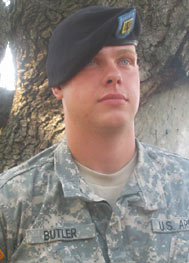Scholarships help missionary kids
Posted: 11/10/06
Scholarships help missionary kids
By Hannah Elliott
Associated Baptist Press
ATLANTA (ABP)—When Mercer University recently announced it will provide undergraduate tuition scholarships for children of Cooperative Baptist Fellowship global field personnel, it joined a significant number of Baptist schools that provide scholarships for “missionary kids.”
Available for full-time students at both the school’s Macon, Ga., and Atlanta campuses, the scholarships will last eight semesters.
Mercer University President Bill Underwood, who presented the scholarship plan at the national CBF meeting in June, said the plan will honor “dedicated CBF field personnel” wanting to provide a college education for their kids.
“This is an opportunity for the university to re-emphasize its mission of empowering people and transforming communities through ministry and missions,” he said in a university statement.
Larry Brumley, Mercer’s senior vice president and chief of staff, said President Emeritus Kirby Godsey conceived the idea for the awards last spring and worked with current President Underwood to see it through.
With Mercer’s annual tuition of $24,000, the scholarships make an extremely significant statement about the commitment of Mercer to CBF missionaries, he said.
When it comes to offering scholarships for children of ministers and missionaries, though, Mercer isn’t alone. Many Baptist schools across the nation give funds to missionary kids.
Officials at Samford University in Birmingham, Ala., for instance, have offered scholarships to children of Baptist missionaries for years.
Philip Poole, executive director of communications, said the school gives a maximum annual award of $3,200 for up to eight semesters. It makes no distinction between missionaries from the Southern Baptist Convention or the Cooperative Baptist Fellowship, he said.
At Dallas Baptist University, the Missionary Kid School Allowance of varying amounts goes to missionaries in active service who have college-age children.
The school even offers a prorated scholarship for some former missionaries, depending on the dates of service.
At Baylor University in Waco, dependents of missionaries actively serving a Baptist international mission agency can get up to $2,500 toward the cost of tuition.
Wendy Norvelle, associate vice president of the International Mission Board, said the SBC agency also gives ample funds to missionary kids.
For children who are eligible, the board gives up to $2,500 per semester, for a maximum of eight semesters. Several qualifiers apply, however, the first being that the child must have been on the mission field for 36 months to receive the funds, she said.
According to a statement from Rob Nash, CBF’s global missions coordinator, all the financial aid gives substantial help to workers “who make significant financial sacrifices in order to pursue their calling to the most marginalized and least evangelized of the world.”
“The expense of a college education weighs heavily on the mind of any parent,” he said.
“Mercer’s generosity ensures that our field personnel can carry on their ministries without being unnecessarily burdened by such concerns.”
